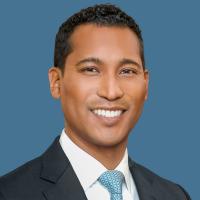Court's Prayer Ruling Has Nationwide Implications
CARROLL COUNTY Md. - The U.S. Supreme Court has ruled that cities and towns across America can continue praying at public meetings.
Monday's 5-4 decision centers on an action that dates back to the nation's founding in 1774, when the first Continental Congress opened with Christian prayers.
Two-hundred and forty years later, however, America is much more religiously diverse. That is part of the reason an atheist and Jew challenged prayers at public meetings in the town of Greece, New York.
They claimed the prayers were mostly Christian, made them uncomfortable, and amounted to coercion.
But in the majority opinion, Justice Anthony Kennedy warned against courts becoming censors of religious speech.
What are the implications of the Supreme Court's prayer ruling? Rev. Rob Schenck, president of Faith and Action, addressed that question and more below:
"Government is prohibited from prescribing prayers ... In order to promote a preferred system of belief or code of moral behavior," Kennedy wrote.
"It would be a few steps removed from that prohibition for legislatures to require chaplains to redact the religious content from their message in order to make it acceptable for the public sphere," he continued.
Meanwhile, the implications of Monday's ruling extend across the country.
For instance, picturesque Carroll County, Maryland, with its farmhouses and rolling hills, seems like a peaceful place. But there's a storm brewing at the intersection of faith and politics and it's drawing national attention.
A group of residents sued the county because the commissioners' opening prayers were only Christian. A federal judge agreed, temporarily barring the board from praying in Jesus' name.
The injunction didn't sit well with one of the commissioners.
"I think that is an infringement on my freedom of speech and freedom of religion," Carroll County Commissioner Robin Frazier told The Baltimore Sun. "I think it's a wrong ruling. But out of respect for my colleagues, I'm not sure how strongly they feel about it, I'm willing to go to jail over it."
Commissioner Frazier also defended her stance on Fox News.
"I said that I pray in Jesus because that's how the Bible instructs us to pray," Frazier said. " says, 'Hitherto have you asked nothing in my name, ask and you shall receive that your joy may be full.' That's Jesus speaking."
After the residents' lawyers filed a motion for contempt, the county, the commissioners, and their legal team went silent.
Commissioner Frazier, Carroll County, and their legal team all declined CBN News's requests for interviews. Although they remain tight-lipped about the issue, people in and around the county had strong opinions about the matter.
"Congress does it so it's okay," one man said.
"I agree 100 percent - yeah, I do," Westminster, Maryland, resident Susan Miller said.
But Woodlawn, Maryland, resident Rachael Yost viewed the matter differently.
"I think that's the part that makes it feel very specific to Christianity. If it was just a generic everyone pray to some higher power, that'd be alright," Yost said. "But (that) automatically excludes me from what's going on."
"This isn't about atheism being pushed down someone's throat," she continued. "This is about being inclusive to everyone, including Christians."
Monica Miller, a lawyer with American Humanist Association, represents the residents, which include a practicing Catholic. She said the Supreme Court ruling won't make much of a difference in the Carroll County case.
"It looked like the town (Greece) was making an effort to be all inclusive, and it seemed as though, although a majority of those prayers ended up being Christian, there were others," she said.
"In this case if the county decided to completely change its practice and do something exactly like the town of Greece perhaps that would be okay," she added.
Jordan Sekulow, with the American Center for Law and Justice, disagreed.
"This idea that we're going to have prayer, but it can't be sectarian prayer is now out the door," Sekulow told CBN News. "That is a big deal for people when you talk about praying in Jesus' name."
"What the court said today is if you're going to have prayer, and there's a Christian praying, they can absolutely close their prayer in Jesus' name," he continued. "So, we're not going to make that distinction anymore. So I think that will have an impact on a number of cases."
Meanwhile, the National Center for Life and Liberty, the group representing the Carroll County Board of Commissioners, applauded the high court's ruling.
"As legal counsel for various county commissions and city councils that have been sued for continuing to allow Christians to pray in Jesus' name, the National Center for Life and Liberty is relieved to see the Supreme Court uphold these vital constitutional rights," the group said. "Today's decision will allow community leaders to continue to pray in the name of Jesus!"
David C. Gibbs III, founder and senior litigation counsel for NCLL, said, "We applaud the justices for not allowing our nation's courts to censor the content of prayers and to continue to allow religious liberty in America for everyone."




